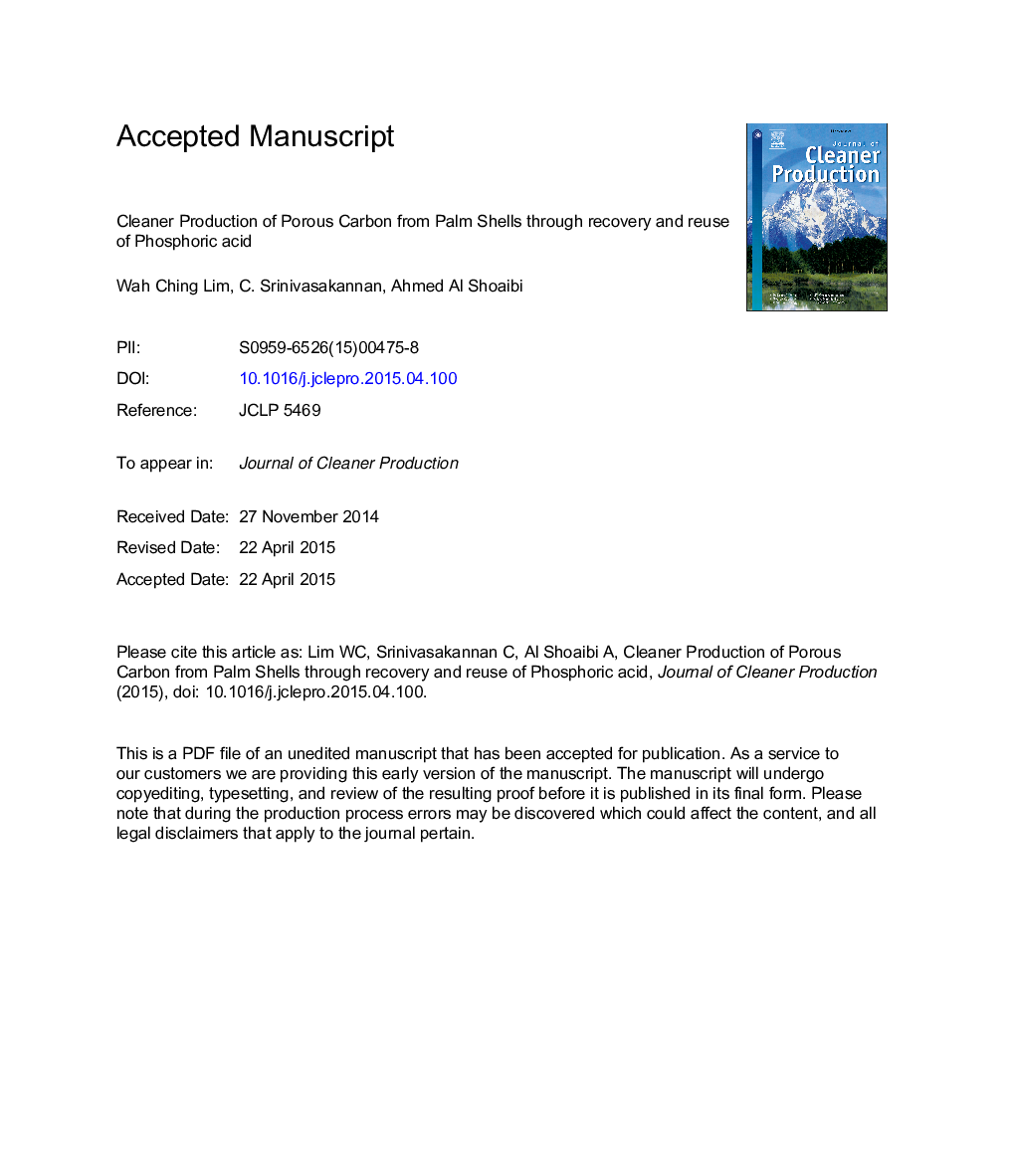| Article ID | Journal | Published Year | Pages | File Type |
|---|---|---|---|---|
| 8103900 | Journal of Cleaner Production | 2015 | 32 Pages |
Abstract
The work attempts to understand the effect of process condition on the acid recovery in the process of porous carbon preparation using phosphoric acid as the activating agent from palm shells precursor. Additionally the effect of reusability of the recovered acid on the textural characteristics and the yield of porous carbon were assessed. Although the economics of this process largely depends on the effective recovery and reuse of acid, none of the earlier work attempted a systematic study on the recovery and reuse of phosphoric acid. The activation was performed covering an activation temperature of 375-525 °C in a self-generated atmosphere. The effectiveness of reclaimed acid was assessed for three cycles covering an activation temperature between 325 and 525 °C. The activation process resulted in an acid loss of 20-25% for the activation temperature in the range of 325-475 °C, while at 525 °C it was in the range of 30-35%. The percentage loss marginally increased with subsequent activations using the reclaimed acids. The reclaimed phosphoric acid was found to have almost similar activation capabilities as that of fresh acid in terms of yield and textural characteristics of the activated carbon. At an activation temperature of 475 °C, the reclaimed phosphoric acid in all three subsequent usages resulted in a carbon with Brunauer-Emmett-Teller (BET) surface area and pore volume of approximately 2000 m2/g and 1.2 cm3/g. However a drastic reduction in the surface area was observed with the reclaimed phosphoric acid at an activation temperature of 525 °C with BET surface area dropping from 2153 to 941 m2/g with the reagent recycled thrice.
Related Topics
Physical Sciences and Engineering
Energy
Renewable Energy, Sustainability and the Environment
Authors
Wah Ching Lim, C. Srinivasakannan, Ahmed Al Shoaibi,
